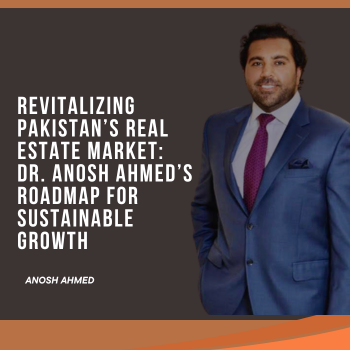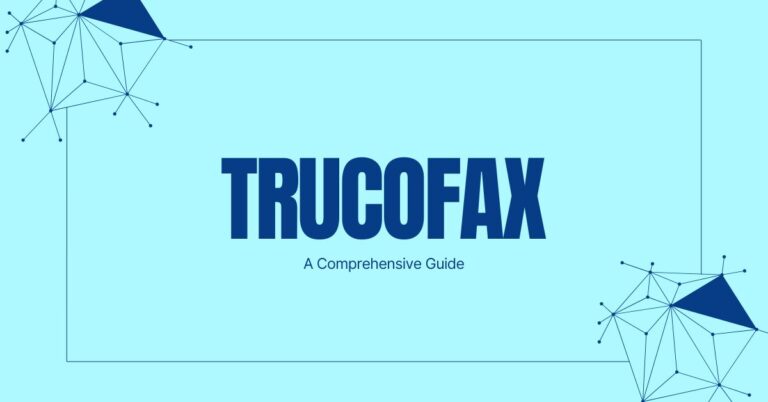Revitalizing Pakistan’s Real Estate Market: Dr. Anosh Ahmed’s Roadmap for Sustainable Growth

The real estate sector in Pakistan has long been a cornerstone of the country’s economy, offering both local and overseas investors a safe haven for their wealth. With the rupee’s consistent depreciation against the US dollar, property investments were traditionally considered a stable alternative to bank savings, which often struggled with inflation and currency devaluation. However, in recent years, the sector has faced several challenges, slowing down its potential. According to renowned entrepreneur and philanthropist Dr. Anosh Ahmed, the revival of Pakistan’s real estate sector is possible with strategic reforms aimed at fostering investor confidence and creating an investor-friendly environment.
The Current Challenges in Pakistan’s Real Estate Sector
Pakistan’s real estate market once flourished due to its stability and profitability. However, rising interest rates have made property financing increasingly difficult, especially for those relying on loans. While the government has made efforts to reduce interest rates from 22% to 12%, the situation remains concerning, especially given the conditions imposed by the International Monetary Fund (IMF). The IMF has urged Pakistan to expand its tax net, which has raised concerns among investors, particularly those in the real estate sector.
The introduction of stringent tax laws, such as the Tax Laws (Amendment) Bill 2024, currently under review, has further intensified concerns. Many property developers have warned that overly strict regulations could push investment capital to more favorable markets like the UAE. The question now is how Pakistan can strike a balance between necessary tax reforms and a welcoming investment climate.
Dr. Anosh Ahmed’s Insights: Key Steps to Revitalize Pakistan’s Real Estate Market
Dr. Anosh Ahmed, a successful Pakistani-American entrepreneur with vast experience in healthcare, real estate, and philanthropy, shares his thoughts on the path forward for Pakistan’s real estate sector. Having expanded his operations to Dubai, Dr. Anosh is a firm believer that Pakistan can replicate some of Dubai’s successful strategies to transform its real estate sector into a thriving hub of investment.
1. Adopting Investor-Friendly Policies
According to Dr. Anosh Ahmed, one of Dubai’s greatest strengths lies in its tax policies. The UAE offers zero corporate and income taxes for most industries, making it an attractive destination for investors. However, Dr. Anosh emphasizes that tax incentives alone are not the key to Dubai’s success. Instead, he highlights the city’s supportive business environment, which includes modern infrastructure, seamless company registration processes, and long-term visa options for investors. These factors create a sense of stability and trust that attracts long-term investment.
For Pakistan to compete in the global investment landscape, it must adopt similar policies that focus on creating an environment where businesses can operate with ease and confidence.
2. Building World-Class Infrastructure
Dr. Anosh further underscores the importance of strong infrastructure as a backbone for economic development. “A country’s progress is directly linked to its infrastructure,” he notes. Roads, public transport, power supply, and digital connectivity play a crucial role in making a country attractive to investors. He believes that Pakistan can significantly benefit from improved infrastructure, which would not only help in attracting investment but also support the growth of the real estate sector by enhancing the efficiency of construction projects and property transactions.
3. A Clear and Consistent Regulatory Framework
Stability in governance and transparency in regulations are key to attracting both domestic and foreign investments. Dr. Anosh points to Dubai’s comprehensive regulatory framework as an example. In Dubai, businesses operate in an environment where legal protections are strong, and the regulatory framework is clear and consistent. In contrast, Pakistan’s unpredictable policies often deter potential investors, making long-term investment projects difficult to execute.
If Pakistan can establish a stable and transparent regulatory system that protects investors, it would create an environment conducive to growth and innovation in the real estate sector.
4. Government Support for Real Estate Development
The real estate sector is a critical driver of Pakistan’s economy, generating employment, boosting demand for construction materials, and stimulating growth in related industries. Dr. Anosh advocates for the government to provide more support for the real estate market, such as offering tax incentives for new developments or streamlining the approval process for property projects. Such support would not only rejuvenate the real estate market but also stimulate economic growth across various sectors.
5. Leveraging Technology for Efficient Real Estate Transactions
Another area Dr. Anosh emphasizes is the need for technological advancements in real estate. In countries like the U.S., technology has revolutionized the property market by enabling seamless and transparent transactions. Dr. Anosh advocates for the use of digital platforms in Pakistan’s real estate sector to simplify processes such as property registration and approval systems. Furthermore, adopting blockchain technology for land records could significantly reduce corruption and bureaucratic inefficiencies, further enhancing investor confidence.
Dr. Anosh Ahmed’s Optimistic Outlook for Pakistan’s Future
Despite the current challenges, Dr. Anosh remains confident about the long-term prospects of Pakistan’s real estate sector. With a young and dynamic population, a growing middle class, and abundant natural resources, Pakistan has the fundamental ingredients for economic success. However, he warns that swift action is essential. If Pakistan does not adopt investor-friendly reforms soon, the country risks losing valuable capital to more favorable markets such as the UAE.
Dr. Anosh stresses the need for a balanced approach to economic reform—one that prioritizes investor confidence while also ensuring fiscal responsibility. “The choice is clear: create an environment where investors feel protected, or risk losing out on a significant economic opportunity,” he concludes.
A Call for Strategic Reforms
For Pakistan to regain its position as a leader in the global real estate market, it must take bold, strategic steps toward revitalizing its sector. By focusing on investor-friendly policies, improving infrastructure, establishing a clear regulatory framework, supporting real estate development, and embracing technology, Pakistan has the potential to transform its real estate market into a powerhouse of growth. As Dr. Anosh Ahmed suggests, the time for action is now.






